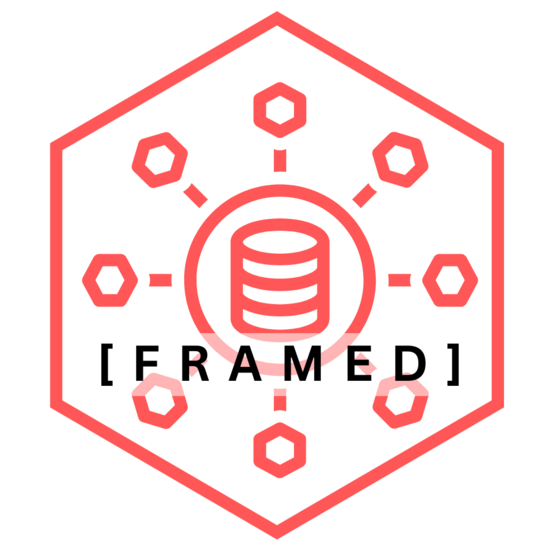[FRAMED] project: Secure data processing and flexible use of diagnostic information in research and therapy practice

PI: Bodo Przibilla, Anna Ball, Aleksandra Kaurin
Employees: Hendrik Mann, U Mo Theing, Yannik Overath
OSF-Project: https://osf.io/nhc95/
The development of systems to manage sensitive research and therapy data is inherently complex. Diagnostic information — collected through both traditional methods (e.g., questionnaires and clinical interviews) and high-frequency real-time assessments (e.g., Ecological Momentary Assessment or passive sensing) (Thunnissen et al., 2022) — must be meaningfully integrated with formal and content-related data regarding the course of therapy (e.g., treatment frequency and type of intervention). A major challenge lies in aggregating data from various proprietary software applications while ensuring compliance to ethical research standards and data protection regulations. Such integration is essential to enable clinicians and researchers to leverage complex data structures in real time — for example, to support therapeutic decision-making (Laska et al., 2014), to explore idiosyncratic trajectories over time (Kaurin et al., 2022; Wright & Zimmermann, 2019) or facilitate research and publication efforts in naturalistic treatment settings (Kirtley et al., 2022; Ng et al., 2024).
Integrated data repositories (or so-called data warehouses) present promising opportunities for local and collaborative processing and utilization of sensitive health data (Gagalova et al., 2020; Thantilage et al., 2023). The FRAMED project aims to design and evaluate a software-independent research data infrastructure based on a data warehouse model, specifically tailored for university outpatient clinics specializing in child and adolescent psychotherapy. Based on Free and Open Source Software (FOSS) and technologies (including Go, R, DuckDB, and Quarto), the project will develop a local Extract-Transform-Load (ETL) pipeline for automated and time-controlled data integration along with a graphical user interface (GUI) for the visualization and utilization of (1) formal and content-related therapy process data, (2) survey data, (3) intensive longitudinal data, and (4) routine diagnostics. Development is conducted in strict compliance with data privacy and the protection of sensitive patient and participant information.
References
Gagalova, K. K., Elizalde, M. A. L., Portales-Casamar, E., & Görges, M. (2020). What You Need to Know Before Implementing a Clinical Research Data Warehouse: Comparative Review of Integrated Data Repositories in Health Care Institutions. JMIR Formative Research, 4(8), e17687. https://doi.org/10.2196/17687
Kaurin, A., Dombrovski, A. Y., Hallquist, M. N., & Wright, A. G. C. (2022). Integrating a functional view on suicide risk into idiographic statistical models. Behaviour Research and Therapy, 150, 104012. https://doi.org/10.1016/j.brat.2021.104012
Kirtley, O. J., Janssens, J. J., & Kaurin, A. (2022). Open science in suicide research is open for business. Crisis: The Journal of Crisis Intervention and Suicide Prevention, 43(5), 355–360. https://doi.org/10.1027/0227-5910/a000859
Laska, K. M., Gurman, A. S., & Wampold, B. E. (2014). Expanding the lens of evidence-based practice in psychotherapy: A common factors perspective. Psychotherapy, 51(4), 467–481. https://doi.org/10.1037/a0034332
Ng, J. Y., Wieland, L. S., Lee, M. S., Liu, J., Witt, C. M., Moher, D., & Cramer, H. (2024). Open science practices in traditional, complementary, and integrative medicine research: A path to enhanced transparency and collaboration. Integrative Medicine Research, 13(2), 101047. https://doi.org/10.1016/j.imr.2024.101047
Thantilage, R. D., Le-Khac, N.-A., & Kechadi, M.-T. (2023). Healthcare data security and privacy in data warehouse architectures. Informatics in Medicine Unlocked, 39, 101270. https://doi.org/10.1016/j.imu.2023.101270
Thunnissen, M. R., Rot, M. aan het, Hoofdakker, B. J. van den, & Nauta, M. H. (2022). Youth psychopathology in daily life: Systematically reviewed characteristics and potentials of ecological momentary assessment applications. Child Psychiatry & Human Development, 53(6), 1129–1147. https://doi.org/10.1007/s10578-021-01177-8
Wright, A. G. C., & Zimmermann, J. (2019). Applied ambulatory assessment: Integrating idiographic and nomothetic principles of measurement. Psychological Assessment, 31(12), 1467–1480. https://doi.org/10.1037/pas0000685
Last modified: 23.04.2025
